A dishwasher is the appliance that cleans your dishes, but have you stopped to think that this appliance also needs some cleaning itself? Have you started to notice mold growing in your machine but don't know the best way to clean it? Well, we've done some research and have the answer for you. Let's get into it.
The best way to get rid of mold in a dishwasher is to use either baking soda, vinegar, or bleach in your machine. To do this, add a few cups of your preferred cleaner into the bottom of your empty dishwasher and run it through a regular cleaning cycle.
As we begin, we will cover all things dishwasher cleaning. Whether you just noticed mold or have been dealing with it for a while, we're here to help. With that said, let's dive right into this post!
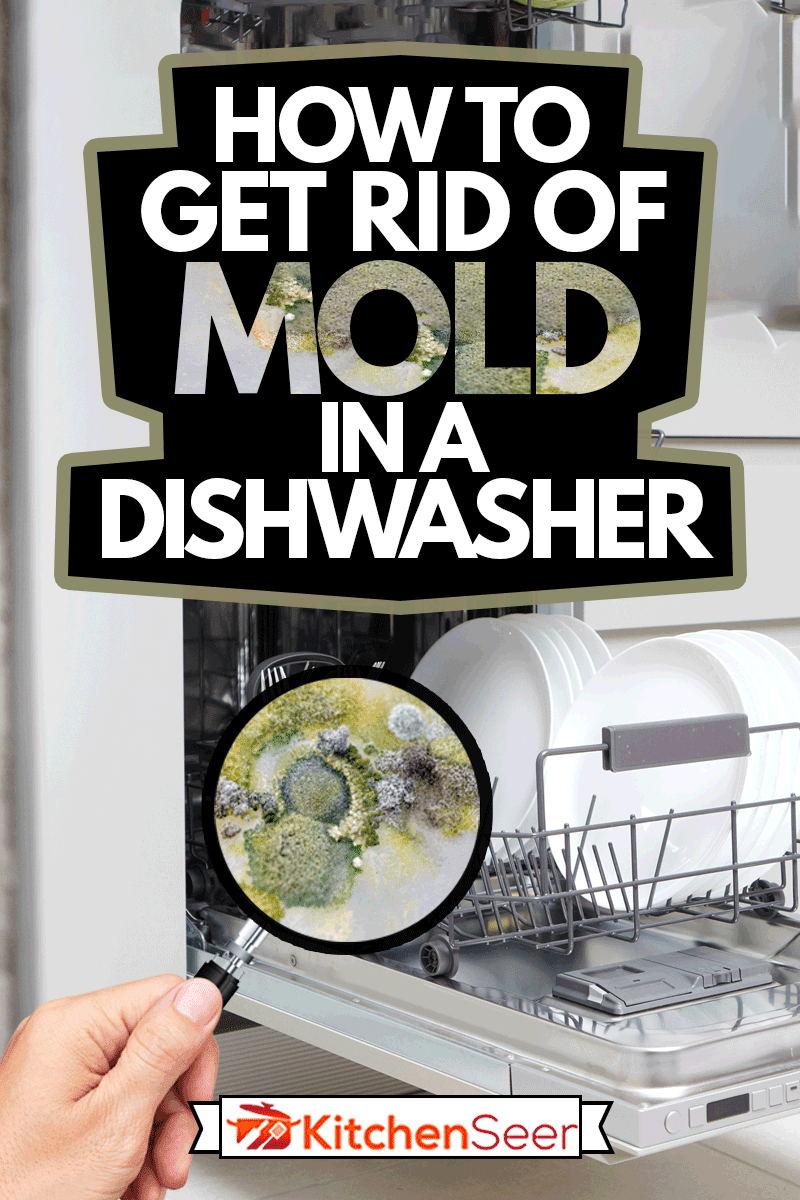
Why Does Mold Grow In The Dishwasher?
Usually, leftover food is what causes mold to form in your dishwasher. Each time your machine cleans your dishes, it essentially collects extra food scraps in its drain, which can clog and become a breeding ground for bacteria.
A good way to prevent this is to rinse off your dishes before putting them into your dishwasher. It's also a good idea to regularly clean your dishwasher's drain to prevent old food from collecting and molding.
How Do You Clean A Moldy Dishwasher?
For cleaning a moldy dishwasher, there are a few ways to do this. The easiest method is to run your dishwasher through a regular cycle while it's empty using baking soda, vinegar, or bleach.
Another way to do this would be to take out your dishwasher's top and bottom rack and clean your appliance by hand. Between the two, running a monthly cleaning cycle will be the easiest but might not be as effective depending on how bad your mold problem is.
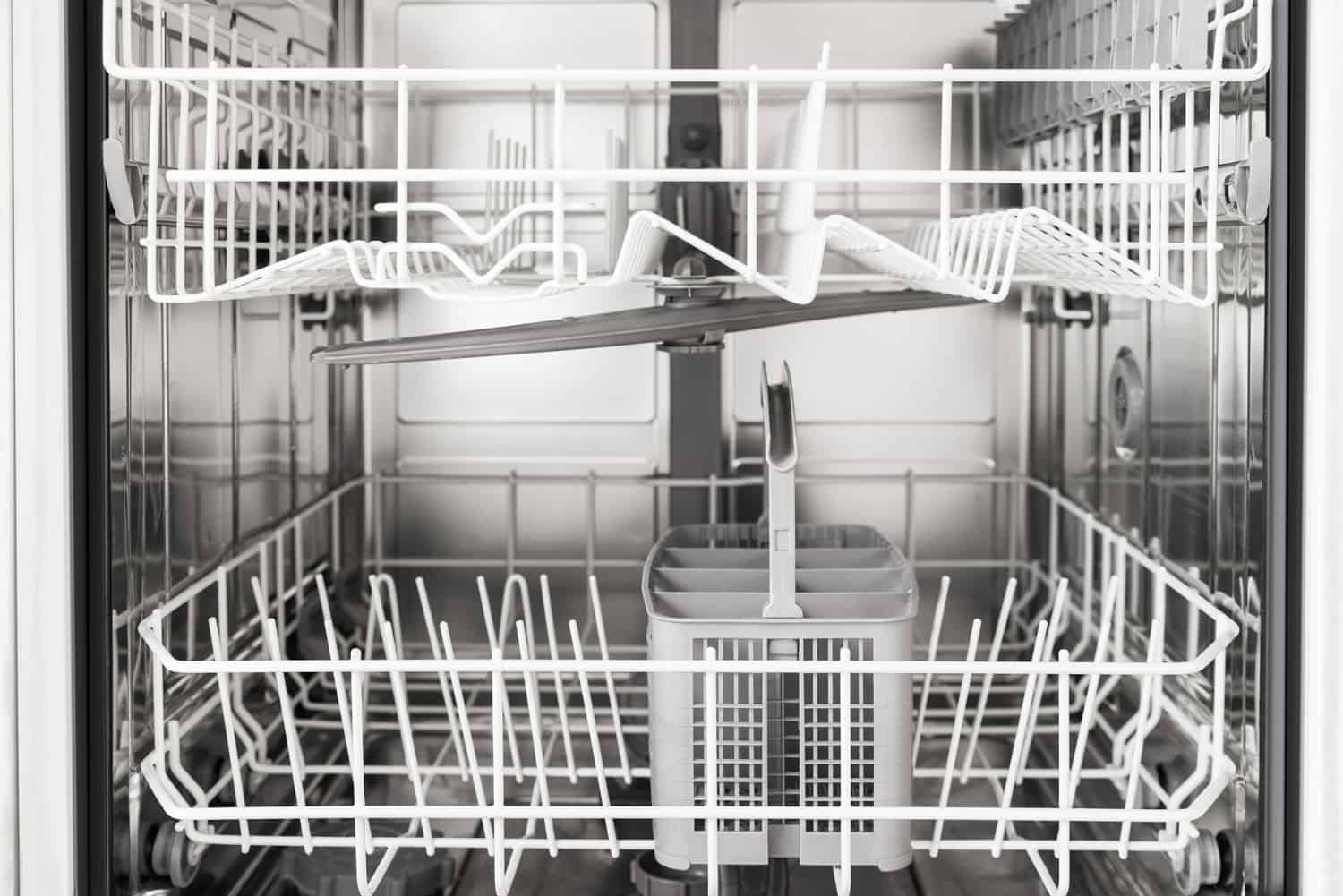
Clorox Regular Bleach
This two-pack of bleach clean, disinfect, and deodorize surfaces, kill 99.9% of bacteria, have fungicidal properties, and each come in a 121-ounce bottle.
View this two-pack on Amazon here.
Can You Get Sick From A Moldy Dishwasher?
When it comes to the effects of a moldy dishwasher, they can make you sick. Breathing in mold can lead to lung infections, particularly for those with weaker immune systems.
On top of that, having a moldy dishwasher can make your appliance dangerous to use, so regular cleaning is essential.
Can Black Mold Grow In A Dishwasher?
Yes, black mold can certainly make your dishwasher its new home. Considering your appliance stays dark and moist for most of its lifetime, this can make for the perfect environment for harmful bacteria and funguses to grow.
Although your dishwasher won't have black mold most of the time, it is very common for milder forms of bacteria to live and multiply in your machine. Healthline states that mold can survive extreme temperatures and highly concentrated cleaners, making getting rid of it a challenge.
Can You Put Bleach In A Dishwasher?
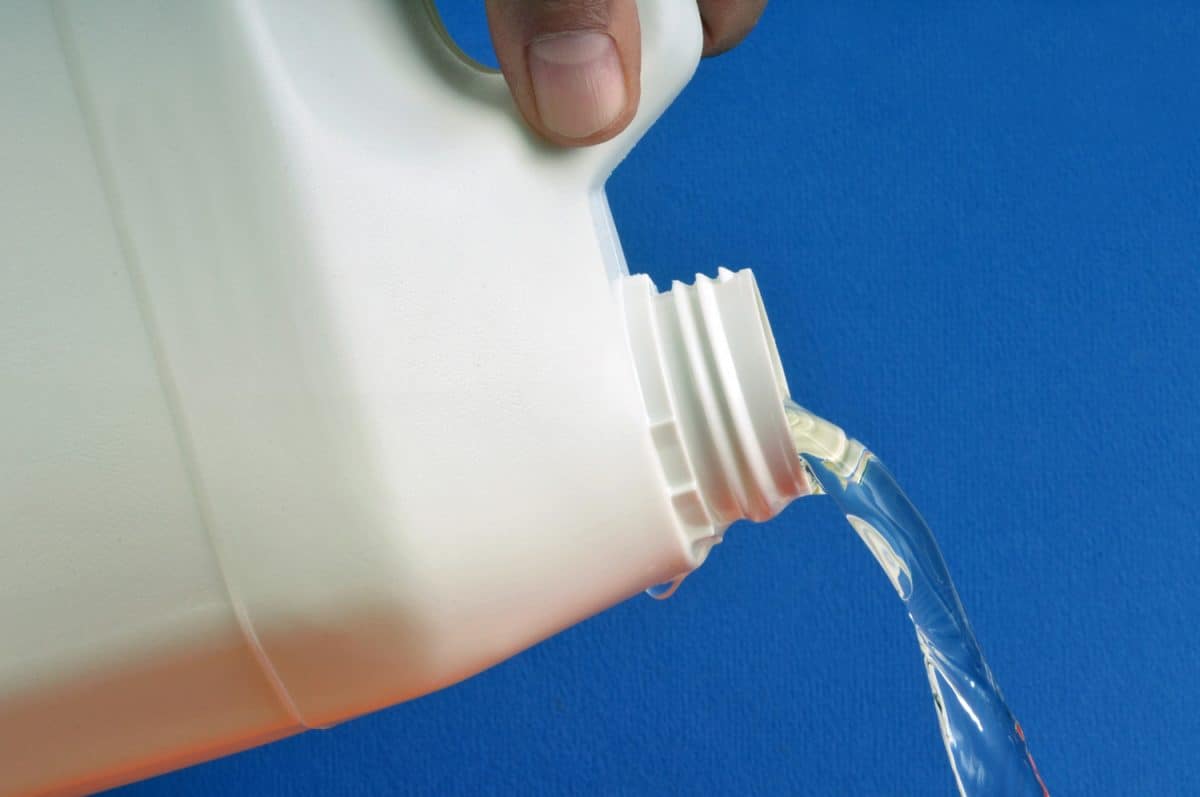
For anyone wanting to deep clean their machine with bleach, this is a great idea. Although bleach is very potent, using a small amount to disinfect your dishwasher is an easy way to get rid of mold and bacteria.
To do this, follow these steps:
- Pour one cup of bleach into a bleach-safe container
- Place the container on the top shelf of your empty dishwasher
- Turn your dishwasher to its highest heat setting
- Skipping the drying cycle, run your machine and allow it to air dry
- Repeat this process weekly or until any mold in your appliance is gone
With that said, if your dishwasher is stainless steel or has steel parts, bleach can damage it, so try to use an alternate cleaning product.
Is Bleach Or Vinegar Better To Clean A Dishwasher?
Between bleach and vinegar, bleach is more powerful but can be damaging to certain metals. Like we said above, bleach isn't safe for stainless steel, meaning vinegar will be the better option for you.
Vinegar is also natural and won't damage the environment, which is a plus. That said, using vinegar too often in your appliance can cause its rubber seals and hose to wear down, so try not to use it too often.
Does A Moldy Dishwasher Smell?
On top of being unsafe, a moldy dishwasher might also smell pretty sour. Generally, a moldy dishwasher will have a musty or damp smell to it, like if you left wet clothes in a basket for too long.
A smelly dishwasher can also indicate a clogged drain, so if you smell something funky, make sure to check your dishwasher's drain for leftover food.
How To Get Rid Of Moldy Dishwasher Odor
For those with a sour-smelling dishwasher, getting rid of its odor shouldn't be too difficult. According to SFGate, you should pour two cups of white vinegar into the bottom of your machine and run it through an entire cleaning cycle.
They also recommend pausing your dishwasher halfway through to allow the hot vinegar to sit in your dishwasher, essentially killing any bacteria and eliminating odors. Of course, this isn't required, but it will do a good job of clearing up any unusual smells.
Does Baking Soda Kill Mold?
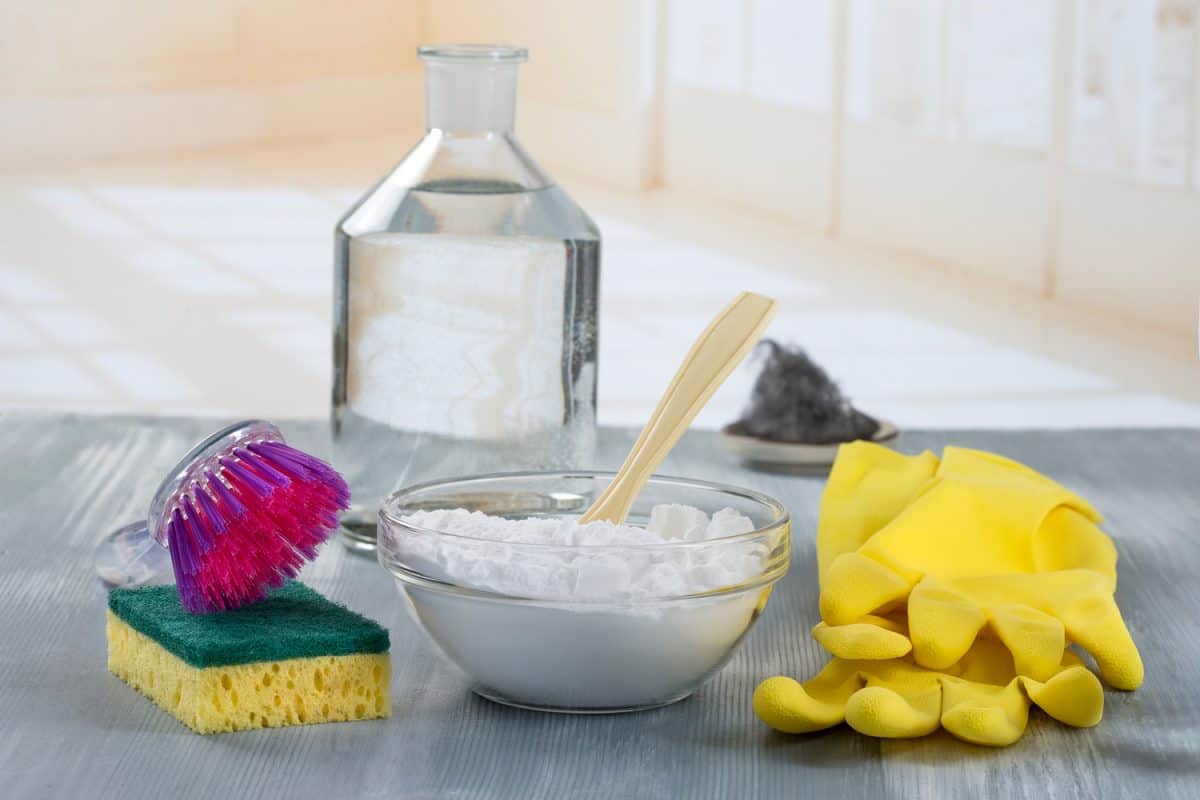
Although used for various things, baking soda is an effective way to get rid of mold on household surfaces. You want to let your baking soda sit on the mold for 30 to 45 minutes to kill it, so this will take time.
You can also try adding a cup or two of baking soda into the bottom of your dishwasher and running it through a full cleaning cycle, similar to our other suggestions.
Is Baking Soda Safe To Use In The Dishwasher?
Overall, yes, baking soda is a safe cleaner to use in your dishwasher. Unlike bleach or harsh chemicals, baking soda has a fairly neutral pH, meaning it isn't super acidic.
Baking soda also dissolves when wet, so you don't have to worry about it clogging your dishwasher or pipes.
What Is The Best Cleaner For A Moldy Dishwasher?
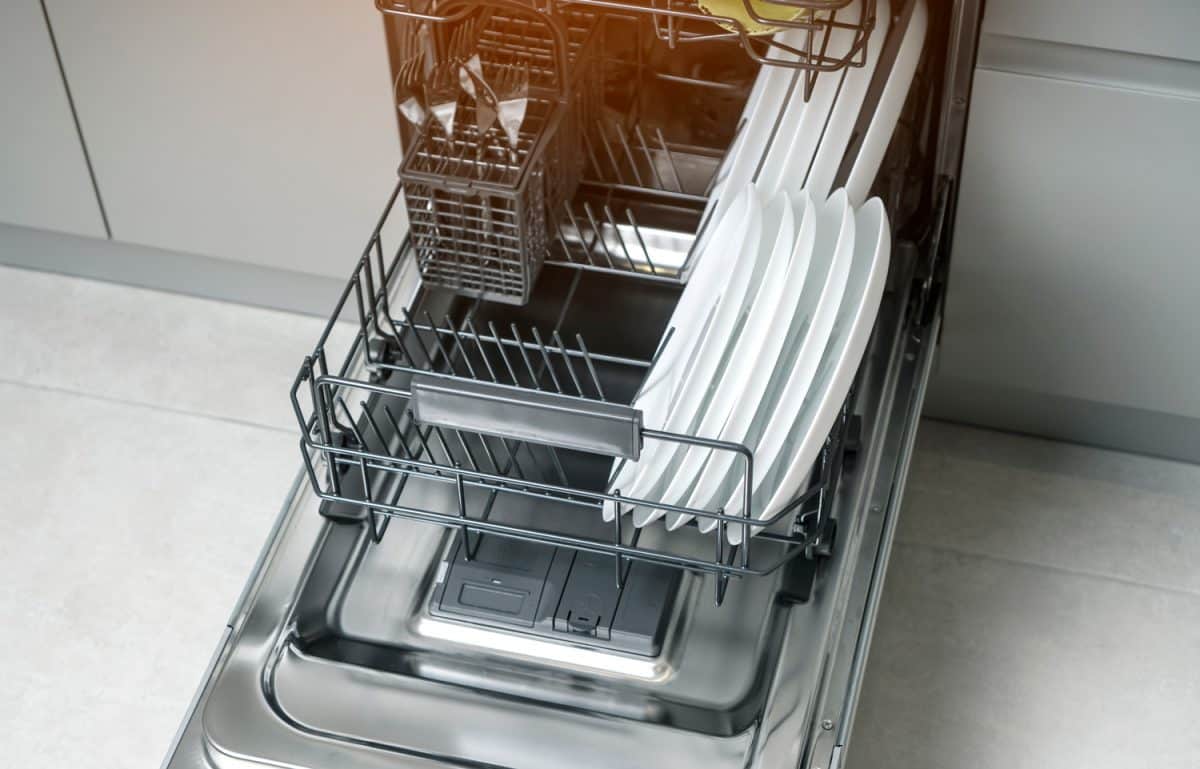
Generally, bleach will do the best job of killing mold in your dishwasher. Although you shouldn't use it too often, running a cleaning cycle with bleach every month is a great way to keep your machine mold and odor-free.
If you prefer a natural product, vinegar is the next best option and won't harm your dishwasher or the planet. Another good alternative to bleach is baking soda, which most times won't contain chemicals and shouldn't damage your dishwasher.
How Often Should I Clean My Dishwasher?
It's usually a good idea to give your dishwasher a deep clean every few weeks, depending on how often you use it. If you tend to run a load of dishes each day, this can cause build-up and even mold after a while, which is why regular cleaning is so crucial.
You should be giving your dishwasher a thorough clean at least once per month, regardless of how often you use it. Even throwing in a dishwasher sanitizing tablet or pod and running an empty cycle can help prevent bacteria from forming, so upkeep shouldn't be too challenging.
Affresh Dishwasher Cleaning Tablets
These sanitizing tablets work like regular dish pods, power away lime and mineral build-up, won't harm stainless steel, can be mixed with bleach, and come in a 12 pack.
To Wrap It Up
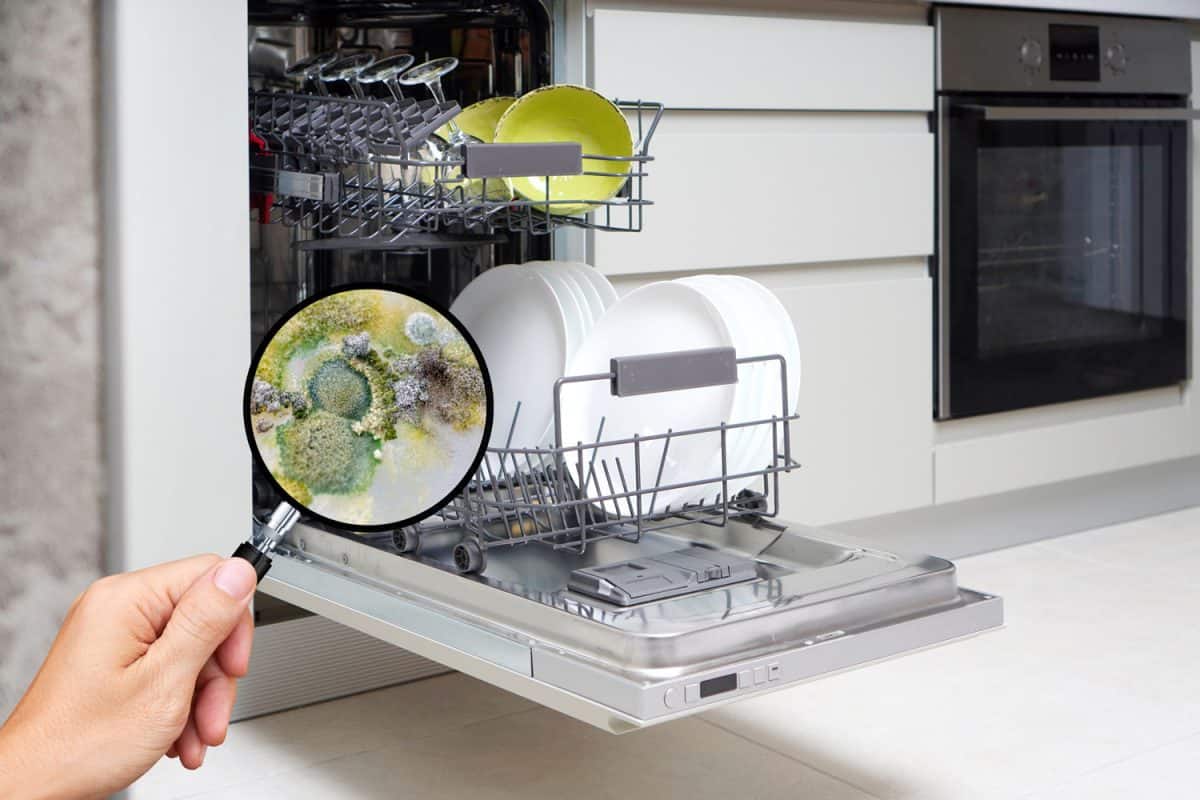
Whether you use your dishwasher every day or not at all, getting rid of mold can be difficult. From what we found, you want to use baking soda, vinegar, or bleach to kill mold in your dishwasher and keep it running smoothly.
When it comes to how you should clean a moldy dishwasher, try pouring a few cups of cleaner into your empty machine and running a full cleaning cycle. You can also scrub your dishwasher by hand, although breathing in mold can be dangerous to your health. Regardless, remember to clean your dishwasher regularly, and don't be afraid to use a little bleach if mold persists.
Before you go, check out these helpful kitchen posts below!
Do Freestanding Dishwashers Need To Be Plumbed In?
Can A Dishwasher Leak When Not Running?
Does A Bosch Dishwasher Need Hot Water?



![Woman cleaning the inside wall of a fridge, How To Clean Mold From Fridge [Inc. Seal]](https://kitchenseer.com/wp-content/uploads/2022/06/Woman-cleaning-the-inside-wall-of-a-fridge-250x250.jpg)

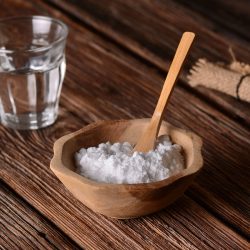
![Close-up of baking soda in a glass jar. Bicarbonate of soda - Is Baking Soda Edible? [Raw And Baked In Recipes]](https://kitchenseer.com/wp-content/uploads/2022/11/Close-up-of-baking-soda-in-a-glass-jar.-Bicarbonate-of-soda..-250x250.jpg)

